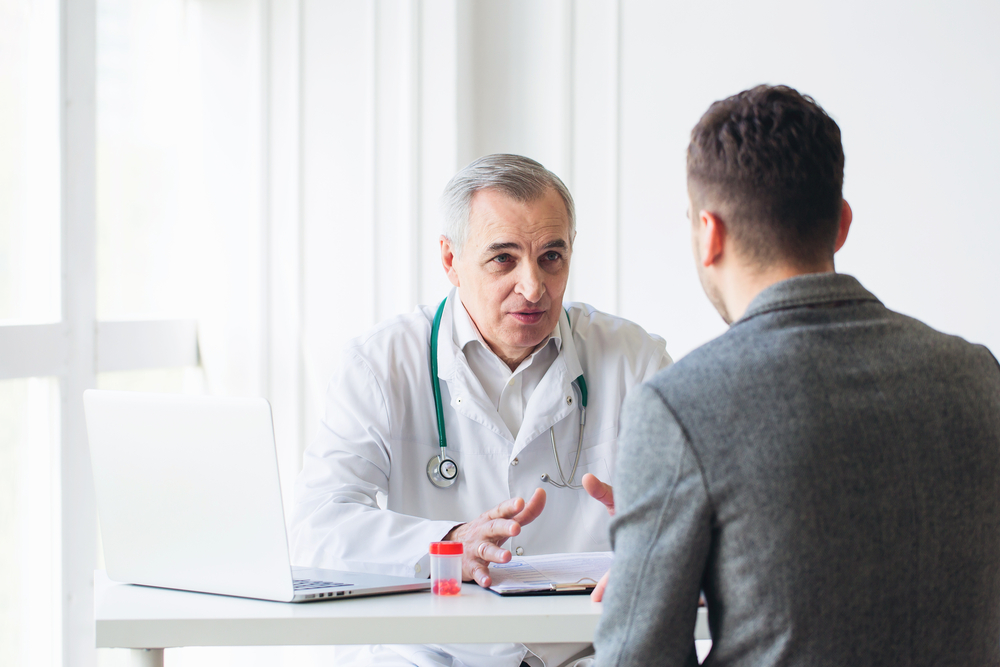“Fear of a name only increases fear of the thing itself” (Harry Potter, J.K Rowling)
Dr Shikhar Kumar, Medical Oncologist, Onco Cancer Centres, explains why cancer patients need the right information about their case and how they can get it through Onco by multidisciplinary cancer specialists.
When a person is diagnosed with cancer, it devastates not only the person but also throws the person’s family into turmoil. One’s life which we take for granted suddenly comes to a screeching halt. The future looks uncertain and bleak. The subsequent months are spent in a haze of doctor visits, appointments, blood tests, scans, and trying to decipher the complex maze of treatment options that are presented to the patient and the family, depending on the type and the stage of cancer.

Cancer is a very complicated disease, just like many of the other non-communicable diseases that afflict humankind. Every person’s cancer is unique, be it in the way one is affected (for example- a lung cancer can cause cough with blood in sputum in one person and can cause pneumonia in another), or in the way it behaves (a triple-negative breast cancer spreads aggressively to the liver and lungs within a few months of diagnosis whereas a hormone receptor-positive breast cancer often stays under control for several years).
Modern medicine (evidence-based) has made tremendous advances in the diagnosis and treatment of several types of cancers. Cancers which were once incurable and carried a terminal prognosis have now become manageable, chronic diseases (just like diabetes and high blood pressure). A few success stories include Imatinib therapy for CML (chronic myeloid leukaemia), ABVD chemotherapy for Hodgkin’s Lymphoma, BEP chemotherapy for germ cell tumours, PARP inhibitor therapy for Ovarian cancers and Immunotherapy for Lung, Kidney cancers and melanoma.
However, there is much more work to be done if we want to cure cancers like advanced stomach, pancreatic, and liver cancers, and aggressive sarcomas. In these difficult-to-cure cancers, there are several thousand clinical trials ongoing across the globe, to further improve the chances of getting cured and remaining cancer-free. Several years of research results in small but significant advances in the treatment of these cancers. Hence, over the past few decades, the cure rates for these cancers have gradually improved.
Another issue that confronts doctors who practice scientific medicine for treating cancers (oncologists) is that it is often difficult to predict whether a singular patient will benefit from a particular treatment (surgery/chemotherapy/immunotherapy etc). Unlike antibiotic treatment for infectious diseases, where nearly 100% of patients get cured of the illness, cancer cure rates rarely approach 100% (save for very few instances). As doctors, we can only suggest the treatment that gives the patient and the family the best chance to fight cancer and cure it, and in advanced stages, we can palliate a patient’s symptoms and prolong their lifespan to the maximum possible extent. All this needs to be done while keeping in mind the toxicity of the treatment, both physical and financial. A treatment that does not cure the patient but pushes an average middle-class Indian family into poverty is a failure, in my humble opinion.
In India, cancer care is very fragmented. The majority of the population is unaware of cancer and the need for early diagnosis and prompt treatment. I see this problem routinely in my practice. Alternative remedies (of unproven benefit) are usually tried by low/middle-income class families for a few months, a critical period during which their cancer often advances to the 3rd or the 4th stage. Once the symptoms worsen, they finally visit the doctor’s clinic. By then, the cancer is usually incurable. To make matters worse, cancer care in overloaded and underfunded government hospitals is subpar, with long waiting times for outpatient visits, lack of access to the latest and most effective cancer drugs, and the absence of personalised and empathetic care. Treatment in a private hospital on the other hand for the uninsured results in a catastrophic financial expenditure, thereby affecting the financial security of the entire family.
Access to the right information makes a huge difference in one’s cancer journey. There are several websites/YouTube channels that provide unverified information and advice, some of which can be downright misleading and harmful for cancer patients, should they choose to follow it. These sources are rarely verified by medical experts in the field and are best avoided.
In this regard, Onco is a pioneer in the field of online cancer-related information, access to world-class oncologists, and providing tumour board (a team of doctors) based second opinions regarding the best cancer treatment, and 24*7 caregiver support. Patients can also access the Onco Cancer Care app, which provides nutrition guidance and distress counselling to tide them over the difficult journey through cancer treatment. Caregivers and cancer patients can also access the American NCCN guidelines (https://www.nccn.org/guidelines/patients). Each cancer has a separate and thorough guideline written in simple language for patients to understand about their cancer, the treatment options, success rates and side effects etc.
